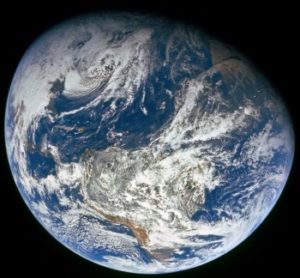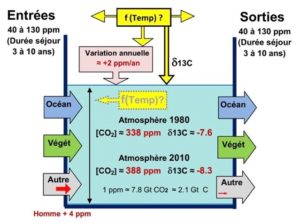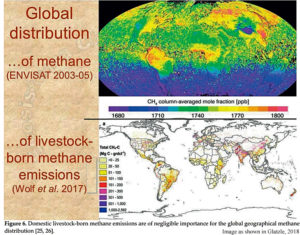by Imperial College London, December 4, 2018 in ScienceDaily
Volcanoes are not fed by molten magma formed in large chambers finds a new study, overturning classic ideas about volcanic eruptions.
Instead, the study suggests that volcanoes are fed by so-called ‘mush reservoirs’ — areas of mostly solid crystals with magma in the small spaces between the crystals.
Our understanding of volcanic processes, including those leading to the largest eruptions, has been based on magma being stored in liquid-filled ‘magma’ chambers — large, underground caves full of liquid magma. However, these have never been observed.
The new study, by researchers at Imperial College London and the University of Bristol and published today in Nature, suggests the fundamental assumption of a magma chamber needs a re-think.
…
by M. Bastach, December 4, 2018 in WUWT
The U.N.’s climate summit will emit as much carbon dioxide as more than 8,200 American homes.
-
It’s also equivalent to more than 11,700 cars driving for one year or 728 tankers trucks worth of gasoline.
-
When air travel is factored in, the summit’s emissions are likely higher, according to one expert.
-
…

by J.C. Maurin, 2 décembre 2018 in ScienceClimatEnergie
Au XVIe siècle, dans une ultime tentative pour sauver le système de Ptolémée, on se résigna enfin à admettre la rotation des planètes autour du Soleil mais on conserva le dogme de la position centrale de la Terre par rapport au Soleil. Le dernier pas vers l’héliocentrisme dut finalement être franchi, à regret. Au XXIesiècle, Le GIEC adapte discrètement son Almageste : on lit dans la version de novembre 2018 du Résumé à l’intention des décideurs dès la première page, 1er encadré de l’introduction → “L’augmentation mondiale de la concentration en dioxyde de carbone est essentiellement due à l’utilisation des combustibles fossiles et aux changements d’affectation des terres”. Fin de cette première page → « La source principale de l’augmentation de la concentration du dioxyde de carbone dans l’atmosphère depuis l’époque préindustrielle provient de l’utilisation des combustibles fossiles ». La certitude absolue, naguère affichée, d’une origine 100% anthropique dans la hausse du CO2atmosphérique disparaît donc. Un modèle mixte est désormais implicitement admis. A cinq siècles de distance, le dernier pas reste toujours difficile à franchir. Le présent article aide à trouver le chemin de Damas.

Figure 1. Rappels des observations (1/4) et corrélations (2/4)
…
by Kenneth Richard, December 3, 2018 in NoTricksZone
Agrobiologist and scientific researcher Dr. Albrecht Glatzle, author of over 100 scientific papers and two textbooks, has published research that shows “there is no scientific evidence, whatsoever, that domestic livestock could represent a risk for the Earth’s climate” and that the “warming potential of anthropogenic GHG [greenhouse gas] emissions has been exaggerated”.
…

…
La géologie, une science plus que passionnante … et diverse



